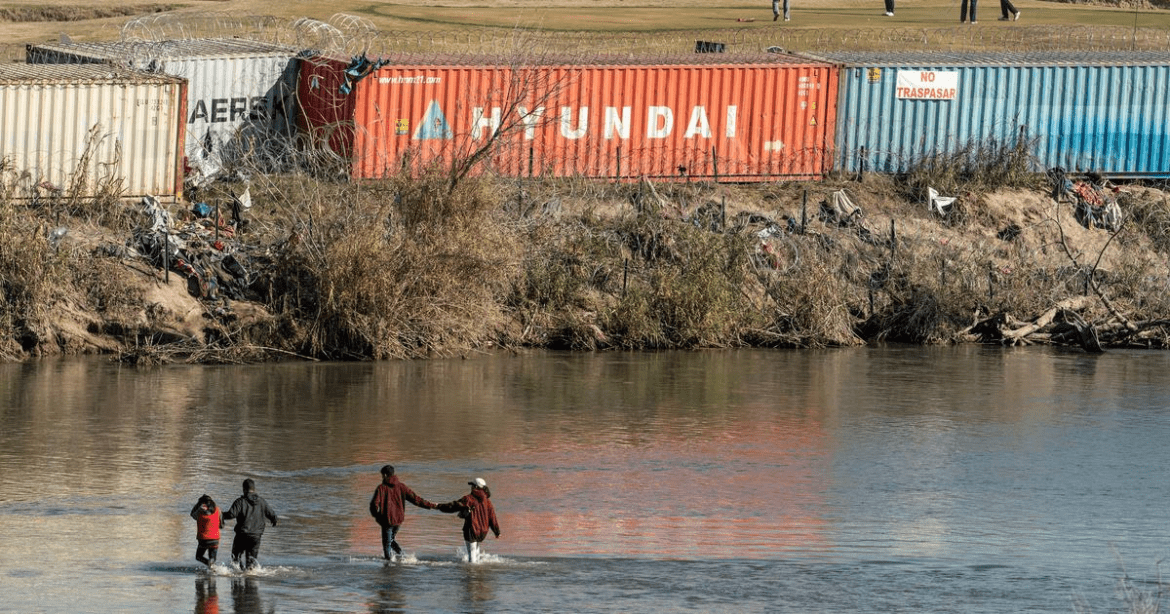AI Generated Summary
- For thousands of Indians aspiring to build a life in the US, the closing of the “dunki route” marks the end of a dangerous chapter and underscores the complexities of international migration in an era of heightened geopolitical tensions.
- In a significant escalation of border security measures, Canada is set to dismantle the so-called “dunki route”—a perilous pathway thousands of Indian nationals have used annually to pursue the American Dream.
- Announced by Finance Minister Dominic LeBlanc, the initiative includes deploying advanced technologies such as drones and surveillance towers, increasing the number of sniffer dogs and helicopters, and establishing a joint strike force dedicated to combating transnational organized crime.
In a significant escalation of border security measures, Canada is set to dismantle the so-called “dunki route”—a perilous pathway thousands of Indian nationals have used annually to pursue the American Dream. This crackdown comes in response to escalating tensions with the United States, where President-elect Donald Trump has issued a stark ultimatum: impose a 25% tariff on Canadian goods unless the country takes decisive action against illegal immigration and drug trafficking.
The “dunki route” has long been a favored, albeit risky, alternative to the heavily fortified US-Mexico border. Traversing Canada’s vast and often treacherous border regions, migrants faced dense jungles, challenging terrains, and hazardous waterways. This route involved multiple stops across Central American nations like Panama, Costa Rica, El Salvador, and Guatemala, where obtaining visas was relatively easier for Indian citizens. The journey, fraught with danger, has seen thousands risk their lives each year, with smuggling networks charging exorbitant fees ranging from $50,000 to $100,000 per person.
Recent data from the US Customs and Border Protection (CBP) highlights a troubling trend. In 2022, approximately 17,000 Indian nationals attempted illegal entry into the US via the northern border, accounting for 16% of over 109,000 total attempts. This number surged to 30,010 in 2023 and further escalated to 43,764 in 2024, representing 22% of nearly 199,000 total attempts. These figures underscore a strategic shift by migrants and smugglers, who increasingly view the US-Canada border as a less fortified entry point compared to its southern counterpart.

Responding to President Trump’s ultimatum, Canadian Prime Minister Justin Trudeau’s administration has unveiled a robust $900-million plan aimed at bolstering security along the US-Canada border. Announced by Finance Minister Dominic LeBlanc, the initiative includes deploying advanced technologies such as drones and surveillance towers, increasing the number of sniffer dogs and helicopters, and establishing a joint strike force dedicated to combating transnational organized crime. These measures are designed to address not only illegal migration but also the rampant fentanyl trafficking that has plagued both nations.
The Trudeau government’s decisive action follows the abrupt resignation of Deputy Prime Minister and Finance Minister Chrystia Freeland, reportedly over disagreements regarding the administration’s response to Trump’s tariff threat. LeBlanc’s comprehensive strategy signals Canada’s unwavering commitment to tightening border security, potentially rendering the “dunki route” obsolete.
The human cost of this crackdown is substantial. Migrants undertaking the “dunki route” often sell their land, jewelry, and even homes to afford the high fees demanded by human traffickers. The perilous journey has a high mortality rate, with estimates indicating that 10-12% of those attempting the illegal crossing either perish or are killed en route.
As Canada ramps up its border defenses, the long-standing practice of using the northern route to enter the United States illegally faces a grim future. The combined pressure of economic sanctions and enhanced security measures is poised to significantly reduce, if not completely eliminate, this pathway. For thousands of Indians aspiring to build a life in the US, the closing of the “dunki route” marks the end of a dangerous chapter and underscores the complexities of international migration in an era of heightened geopolitical tensions.




